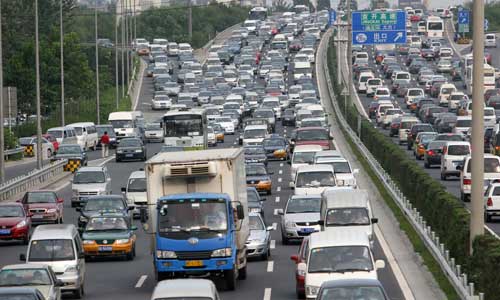Economy
The challenge of millions on the move
By Andrew Moody and Chen Jia (China Daily)
Updated: 2010-10-18 10:35
 |
Large Medium Small |
Urban planners consider how to deal with increasing urbanization
BEIJING - Small could be beautiful on China's road to urbanization. Some 400 million people are set to move from rural areas to cities over the next 15 years, according to the McKinsey Global Institute.
There are fears that already crowded big cities such as Beijing, Shanghai and Chongqing will not be able to cope with ever more rural migrants.
Many from the government downward believe the only solution will be to create a new generation of smaller cities, many of them satellites to existing cities.
Mark Yaolin Wang, professor at the department of resource management and geography at the University of Melbourne, believes one of the only solutions is to transform 2,000 existing towns into cities.
"They are a much better route to development. These towns have existing infrastructure and distinctive heritage and culture," he said.
"The problem with creating new cities around existing larger cities is that they lack character and have no personality."
Despite being the world's most populous country with 1.3 billion people, China remains one of the least urbanized countries in the world.
Although its level of urbanization increased from 13 percent in 1950 to 41 percent in 2005, according to McKinsey, it remains well below the 75 percent levels found in the United States and Europe.
Even by 2025, after the next wave of rural migrants, the figure is only set to increase to 64 percent.
Behemoths
|
||||
Wang at Melbourne University said one of the challenges will be persuading rural migrants to move to smaller cities.
"People will still want to move to the bigger cities because that is where the better jobs and opportunities are," he said.
"If people keep drifting to the bigger cities, the problem will become unsustainable. Already people in professional jobs are finding the cost of living, particularly property, in the major cities unaffordable and this I think will provide an opportunity to the development of small- and medium-sized cities, since they will be the only alternative."
Rural migration is now much more fluid in China as a result of the gradual relaxation of the hukou, or household registration system.
In the past, it has been difficult for people with rural hukou to obtain registration in urban areas and they have often relocated illegally.





